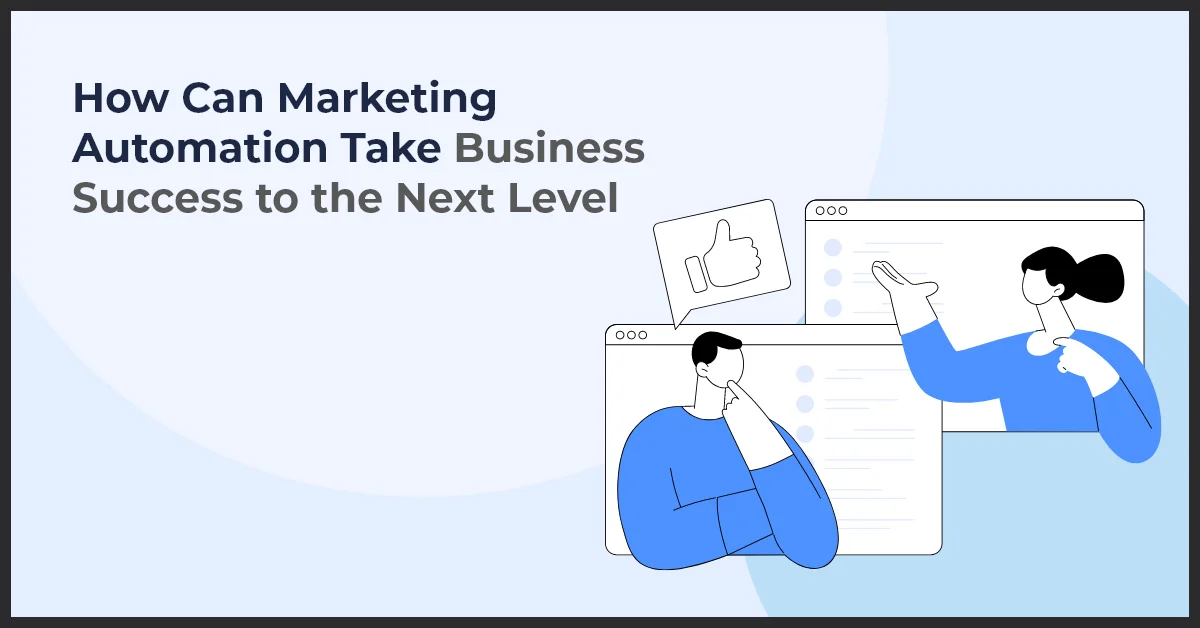Harnessing Marketing Automation for B2B Content Marketing

Published on: December 22, 2023
Updated on: July 01, 2024
643 Views
- Marketing Automation
4 min read
In the fast-paced world of B2B marketing, staying ahead of the competition requires strategic and efficient approaches. One such game-changing strategy that has gained immense popularity is the integration of marketing automation in B2B content marketing. As businesses increasingly recognize the importance of personalized and targeted content, the role of automation becomes pivotal in streamlining processes and maximizing the impact of marketing efforts.
Understanding the Essence of B2B Content Marketing
B2B content marketing serves as the backbone for establishing thought leadership, building brand awareness, and nurturing leads throughout the complex sales funnel. Unlike B2C marketing, where the focus is often on a broader audience, B2B content marketing is tailored to address the unique needs and challenges of businesses. This demands a more personalized and nuanced approach to content creation and distribution.
The goal of B2B content marketing is not just to attract attention but also to provide valuable insights, solutions, and information that resonates with the target audience. High-quality, relevant content can position a company as an industry authority and nurture trust among potential clients.
The Role of Marketing Automation in B2B Content Marketing
1. Personalization at Scale:
One of the biggest challenges in B2B content marketing is delivering personalized content to a diverse audience. Marketing automation platforms enable marketers to segment their audience based on various parameters such as industry, company size, and location. This segmentation allows for the creation of highly targeted content that resonates with specific groups, increasing the likelihood of engagement.
2. Lead Nurturing and Scoring:
In the B2B landscape, lead nurturing is a crucial aspect of the marketing strategy. Marketing automation tools facilitate the creation of automated workflows that deliver relevant content at different stages of the buyer's journey. Through lead scoring, businesses can prioritize leads based on their interactions with the content, ensuring that the sales team focuses on prospects showing genuine interest.
3. Efficient Content Distribution:
Marketing automation streamlines the process of content distribution across various channels. From email campaigns to social media posts, automation ensures timely and consistent delivery of content. This not only saves time but also allows marketers to analyze the performance of different channels, refining their strategies for maximum impact.
4. Data-Driven Decision Making:
Automation tools provide valuable insights through analytics, enabling marketers to make data-driven decisions. By tracking user behavior, engagement rates, and conversion metrics, businesses can refine their content strategy for optimal results. This iterative process ensures continuous improvement and adaptation to the evolving needs of the audience.
5. Integration with CRM Systems:
Effective communication between marketing and sales teams is essential for B2B success. Marketing automation platforms seamlessly integrate with Customer Relationship Management (CRM) systems, ensuring that the entire organization is on the same page regarding lead status, interactions, and customer preferences.
Implementation Best Practices
1. Define Clear Objectives:
Before implementing marketing automation, it's crucial to define clear objectives. Whether the goal is to increase lead generation, improve lead nurturing, or enhance customer retention, having a well-defined strategy ensures that automation aligns with broader business goals.
2. Content Mapping:
Create a comprehensive content map that aligns with different stages of the buyer's journey. This helps in developing targeted content that addresses the specific needs and concerns of prospects at each stage, maximizing the impact of automated campaigns.
3. Regular Performance Evaluation:
Constantly monitor and evaluate the performance of automated campaigns. Analyze key metrics such as open rates, click-through rates, and conversion rates to identify areas of improvement. Regular assessment allows for adjustments and optimization for better results.
4. A/B Testing:
Experiment with different elements of your automated campaigns through A/B testing. This could include testing subject lines, messaging, or even the timing of content delivery. A/B testing provides valuable insights into what resonates best with your audience.
5. Training and Collaboration:
Ensure that your marketing and sales teams are well-trained in using the automation platform. Collaboration between these teams is crucial for the seamless flow of information and effective lead management. Regular training sessions and communication channels can foster a culture of collaboration within the organization.
Conclusion
In the dynamic landscape of B2B marketing, harnessing the power of marketing automation for content marketing is no longer a luxury but a necessity. By adopting automation tools strategically, businesses can streamline their processes, deliver personalized content at scale, and gain valuable insights for continuous improvement. The integration of marketing automation in B2B content marketing not only enhances efficiency but also positions businesses for sustained growth and success in an ever-evolving market.



